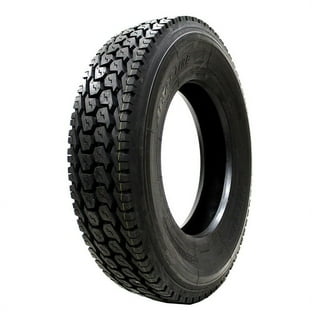Discover Exclusive Mopar Tire Service Specials in Morris Today
Tire Solution: Recognizing Tire Stress Monitoring Equipments
Comprehending Tire Pressure Tracking Solutions (TPMS) is a vital aspect of maintaining optimum car performance and safety and security on the road. With improvements in auto innovation, TPMS has actually ended up being a typical feature in modern cars, providing real-time information on tire pressure levels.

Relevance of TPMS
The value of Tire Pressure Surveillance Solutions (TPMS) lies in their ability to improve automobile security and efficiency via real-time tracking of tire stress degrees. Maintaining the correct tire stress is vital for ensuring ideal handling, stopping, and general security of a vehicle. TPMS gives vehicle drivers with immediate responses on any kind of underinflated or overinflated tires, enabling prompt changes to be made.
Elements of TPMS
Comprising numerous important elements, a Tire Pressure Tracking System (TPMS) functions as a sophisticated safety attribute in modern-day automobiles. The main elements of a TPMS include sensors, a control component, and a warning indicator. Sensing units are generally located in the tire valve stem or affixed to the wheel assembly, where they gauge tire pressure and send data to the control module. The control module processes this details and causes a warning if it identifies considerably reduced stress in any one of the tires. The caution indicator, frequently an icon on the dashboard, informs the driver to inspect the afflicted tire or tires. Some progressed TPMS versions additionally present the actual tire stress analyses for each and every tire, offering chauffeurs with real-time details to guarantee optimal tire efficiency and security. By keeping track of tire pressure continuously, TPMS aids stop crashes, minimizes tire wear, and improves gas efficiency, making it a crucial element for lorry safety and performance.
Kinds Of TPMS

On the other hand, indirect TPMS relies upon the automobile's wheel rate sensors to monitor tire stress. This system detects underinflation by contrasting the rotational speeds of the wheels. Indirect TPMS is much less expensive than direct TPMS, as it makes use of existing sensing units within the lorry.
While straight TPMS supplies a lot more exact readings, indirect TPMS is simpler in style and normally requires much less maintenance. Both systems have their limitations and benefits, and the option in between them commonly depends on factors such as cost, automobile make, and personal choice. Understanding click resources the differences between these two sorts of TPMS can assist vehicle owners make notified decisions regarding tire maintenance and safety.
TPMS Upkeep Tips
Reliable upkeep of TPMS is important for making sure optimum efficiency and safety and security of your vehicle. Frequently examining the TPMS sensors for any kind of damage or corrosion is vital. Make sure that the sensors are tidy and cost-free from debris that might disrupt their functioning. Additionally, it is recommended to inspect the sensing unit batteries regularly and replace them as required to assure exact readings. Conduct routine checks on the tire stress levels and compare them with the TPMS readings to ensure they correspond. Recalibrate the system complying with the producer's guidelines if there are any inconsistencies. Moreover, throughout tire rotation or replacement, make certain that the TPMS elements are managed carefully to prevent any possible damages. If the TPMS advising light illuminates on the control panel, address the problem without delay by checking the tire stress and the general system for any type of mistakes. By adhering to these upkeep tips, you can prolong the lifespan of your TPMS and enhance the security of your driving experience.
Benefits of Proper Tire Stress
Keeping correct tire pressure, as stressed important link in TPMS Maintenance Tips, is crucial for enjoying the various benefits connected with ideal tire stress levels. Among the main advantages of preserving the correct tire stress is boosted gas performance. When tires are correctly inflated, there is less moving resistance, leading to much better gas economic situation. their website In addition, proper tire pressure guarantees also tire wear, expanding the lifespan of the tires and promoting much safer driving problems. With the ideal tire stress, automobiles additionally have far better handling and grip, specifically in unfavorable weather condition conditions. This can enhance general driving efficiency and security for the chauffeur and passengers. Additionally, preserving ideal tire pressure can add to a smoother and much more comfy experience by lowering resonances and sound brought on by underinflated tires. In verdict, the benefits of correct tire stress surpass simply tire long life; they include enhanced gas efficiency, boosted safety and security, far better automobile efficiency, and overall driving convenience.
Verdict
Finally, understanding tire stress surveillance systems (TPMS) is important for maintaining optimum tire stress and ensuring car security. By identifying the relevance of TPMS, recognizing with its parts, recognizing the different kinds readily available, sticking to appropriate upkeep tips, and realizing the advantages of preserving correct tire pressure, chauffeurs can boost their driving experience and extend the life expectancy of their tires. Appropriate tire stress is key to secure and reliable automobile procedure.
